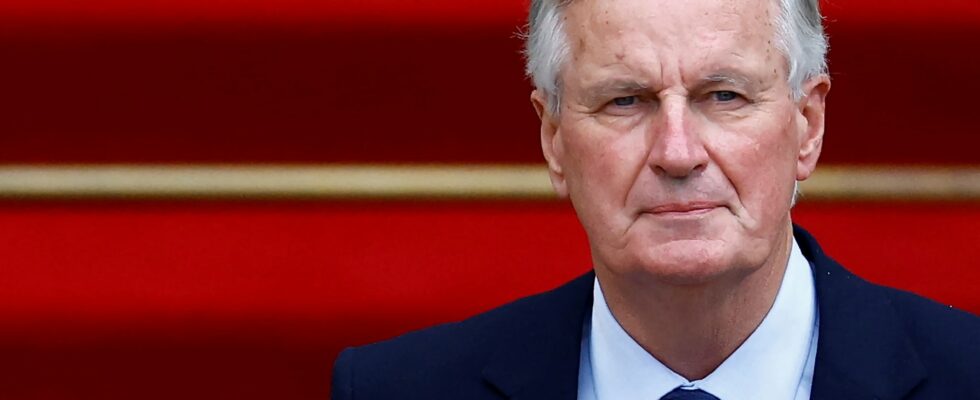By playing extra time on the appointment of Gabriel Attal’s successor, Emmanuel Macron has ended up putting spokes in the wheels of his “coexistence” Prime Minister, Michel Barnier. Even before appointing his government, the new occupant of Matignon already finds himself caught up in the puzzle of the 2025 budget, forced to get moving. Especially since in terms of budgetary legislation, two iron laws prevail: the draft finance law (PLF) requires at least seventy days of debate and must be promulgated no later than the last day of the year.
Problem: the executive is already behind schedule. According to the website of the Ministry of Economy and Finance, the Council of State should have already been consulted for its opinion on the articles of the PLF as well as the figures for estimated revenue and expenditure. However, to date, the magistrates of the Palais Royal have still not seen a shadow of the budget. The same goes for the European Commission, which will have to wait some time before France sends it its plan to reduce the public deficit, initially expected for September 20.
For its part, the Senate Finance Committee also complained about having received the so-called “offprint” document presenting the credit ceilings by ministry. And for good reason, while the organic law relating to finance laws (LOLF) provides for the transmission of the text on July 15, it was not communicated to the senators until September 2, with a delay of seven weeks…
October-December: examination of the PLF by Parliament
As soon as the government is in full force, it will have to speed up the pace to try to make up for lost time. Because once the text has been combed through by the members of the Senate Finance Committee and the judges of the Council of State, it is up to the Budget Directorate to draw up the famous “blue” draft of the PLF.
A reference to the color of the file that brings together all the documents that make up the budget such as the articles of the PLF, its quantified annexes but also the preliminary evaluations of the articles. In short, the final copy of the 2025 finance bill, which must be presented “before the first Tuesday of October” before the Council of Ministers, specifies the LOLF. “The condition of a thorough and serious examination of the text” by Parliament, insisted the Finance Committee of the Senate during a press conference, Wednesday, September 4.
Two aspects to consider
And it is at the Palais Bourbon that the parliamentary shuttle of the PLF begins, which must be submitted to the lower house “at the latest on the first Tuesday of October”, confirms Bercy. October 1st falling on a Tuesday, the next government will therefore have to, following the presentation in the Council of Ministers, send the 2025 budget to the Council of State. A date which coincides with the opening of the parliamentary session.
At this stage, the first reading of the text takes place, which is divided into two parts. The first concerns the revenue provided for by the bill. The second lists the operating and investment expenses. Once adopted by the deputies, the text goes to the Senate, which examines the text following the same steps as their counterparts in the lower house.
December 31, 2024, the deadline
If “the joint committee (CMP), which meets following the Senate vote, fails to adopt a common text”, the bill will be subject to a second reading. In this case, the text reworked by the senators is examined by the deputies, before crossing the threshold of the Luxembourg Palace again.
With the lower house having the final say, the text will complete its journey at the Palais Bourbon for a “final reading”, and should be adopted in December. Once promulgated by the President of the Republic after its adoption by Parliament, the finance law for the year 2025 must be published in the Official Journal no later than December 31.
The specter of censorship
But given the unprecedented political and institutional context under the Fifth Republic, the chances of the deadline not being met have rarely been so high. In addition to the delays already accumulated, the future government will have to face a certain number of obstacles. First of all, censorship.
Because with a hemicycle divided into three blocks of almost equal size, the use of a 49.3 on the budget – which Elisabeth Borne did not deprive herself of in 2022 and 2023 – has a good chance of translating into censure if the National Rally joins its voices to those of the New Popular Front. France would find itself without an executive, but also without a budget. And thus, without authorization to collect taxes.
“We have somewhat forgotten it, but in 1789, we made the Revolution for that,” recalled the professor of public law at the Panthéon-Assas University Martin Collet in the columns of L’Express at the end of August. Consent to taxation is an essential element of our democracy, enshrined in article 14 of the Declaration of the Rights of Man and of the Citizen. The government cannot do without parliamentary agreement here.”
Playing for time, the left’s ultimate weapon
Censorship is not the only obstacle to the promulgation of the finance law. Because under article 61 of the Constitution, 60 deputies or 60 senators – as well as the President of the Republic, the Prime Minister, or the presidents of the two chambers of Parliament – can refer the constitutionality of the finance bill adopted at the end of the debates to the Constitutional Council.
The wise men of Rue Cambon could, for example, be seized by the 190 or so deputies of the left-wing coalition, or at least by the 72 rebellious elected officials. Marginalized by an RN set up as kingmaker, the latter now have only one objective: to make life impossible for the Barnier government.
